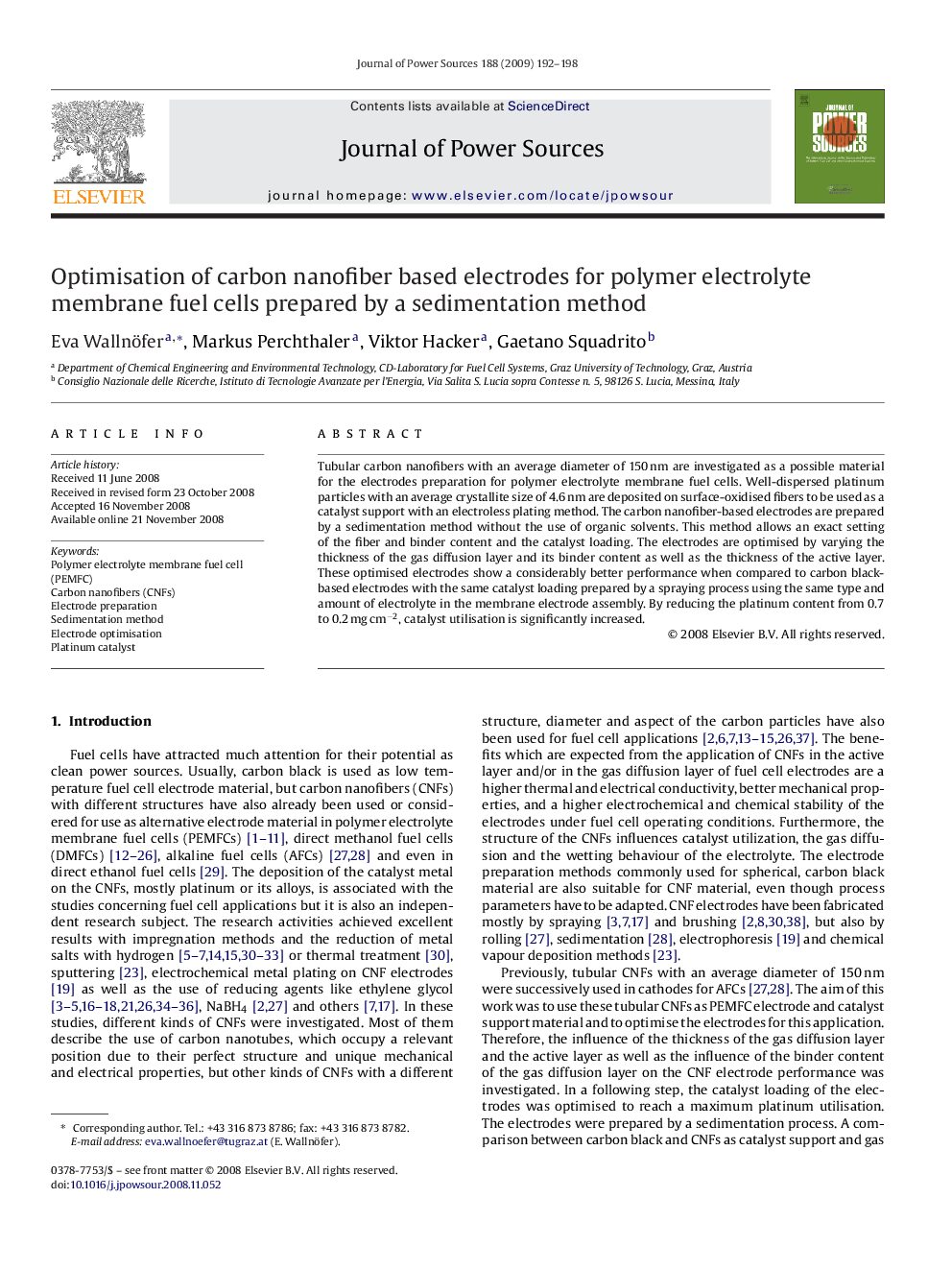| Article ID | Journal | Published Year | Pages | File Type |
|---|---|---|---|---|
| 1294333 | Journal of Power Sources | 2009 | 7 Pages |
Tubular carbon nanofibers with an average diameter of 150 nm are investigated as a possible material for the electrodes preparation for polymer electrolyte membrane fuel cells. Well-dispersed platinum particles with an average crystallite size of 4.6 nm are deposited on surface-oxidised fibers to be used as a catalyst support with an electroless plating method. The carbon nanofiber-based electrodes are prepared by a sedimentation method without the use of organic solvents. This method allows an exact setting of the fiber and binder content and the catalyst loading. The electrodes are optimised by varying the thickness of the gas diffusion layer and its binder content as well as the thickness of the active layer. These optimised electrodes show a considerably better performance when compared to carbon black-based electrodes with the same catalyst loading prepared by a spraying process using the same type and amount of electrolyte in the membrane electrode assembly. By reducing the platinum content from 0.7 to 0.2 mg cm−2, catalyst utilisation is significantly increased.
